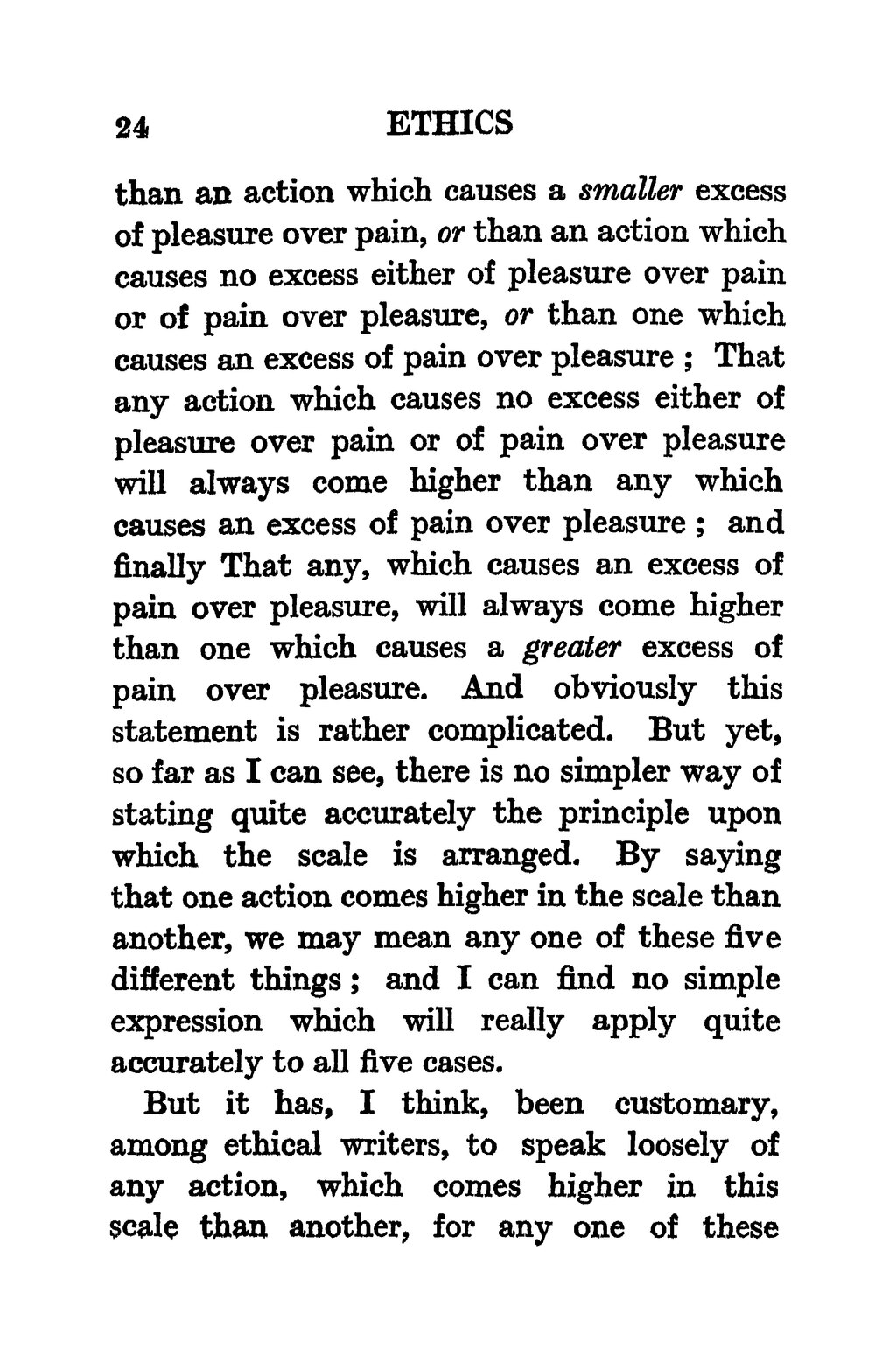than an action which causes a smaller excess of pleasure over pain, or than an action which causes no excess either of pleasure over pain or of pain over pleasure, or than one which causes an excess of pain over pleasure; That any action which causes no excess either of pleasure over pain or of pain over pleasure will always come higher than any which causes an excess of pain over pleasure; and finally That any, which causes an excess of pain over pleasure, will always come higher than one which causes a greater excess of pain over pleasure. And obviously this statement is rather complicated. But yet, so far as I can see, there is no simpler way of stating quite accurately the principle upon which the scale is arranged. By saying that one action comes higher in the scale than another, we may mean any one of these five different things; and I can find no simple expression which will really apply quite accurately to all five cases.
But it has, I think, been customary, among ethical writers, to speak loosely of any action, which comes higher in this scale than another, for any one of these
